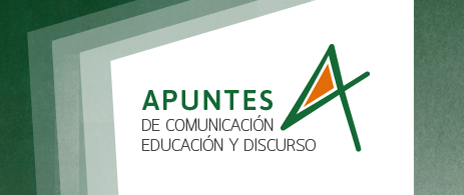Discourse and Information. The status of the discourse of information and the role of readers in the co-production of meanings of media discourse
DOI:
https://doi.org/10.24215/25252046e012Keywords:
information discourse, comments from readers, construction of senseAbstract
This article outlines the theoretical and methodological design proposal developed within the framework of a research project that proposes the analysis and denaturing of the discourse of information inscribed in the social discourse. The role of readers / viewers as co-producers of the meaning of media content is analyzed from the study of the comments in different digital portals linked. The focus of the discourse redefines the way of thinking these ideological formations and banishes a way of understanding the information as aseptic and objective.Downloads
References
ANGENOT, M. (2010). El discurso social. Los límites históricos de lo pensable y lo decible. Barcelona, España: Siglo veintiuno.
ARANCIBIA, C. y MONTECINOS, L. (2013). El blog de comentarios a textos de opinión en ciberperiódicos: un género en constante reconstrucción. Literatura y Lingüística, (28), 123-147. Recuperado de https://scielo.conicyt.cl/scielo.php?script=sci_arttext&pid=S0716-58112013000200008
BAJTÍN, M. [1976] (1985). Estética de la creación verbal. Ciudad de México, México: Siglo veintiuno.
BENVENISTE, É. [1977] (2008). Problemas de lingüística general, tomo II. Buenos Aires, Argentina: Siglo veintiuno.
CHARAUDEAU, P. (2003). El discurso de la información. La construcción del espejo social. Barcelona, España: Gedisa.
GALLO, D. (6 de septiembre de 2010). Hay mayoría de extranjeros en las villas. La Nación. Recuperado de https://www.lanacion.com.ar/1301797-hay-mayoria-de-extranjeros-en-las-villas
GRICE, P. (1991). «Lógica y conversación». En L. M. Valdés Villanueva (Ed.), La búsqueda del significado (pp. 511-530). Madrid, España: Tecnos.
LA NACIÓN (15 de julio de 2007). «LA NACION abre todas sus páginas a los lectores». Recuperado de https://www.lanacion.com.ar/925827-la-nacion-abre-todas-sus-paginas-a-los-lectores
MANCERA RUEDA, A. y PANO ALAMÁN, A. (2013). El español coloquial en las redes sociales. Madrid, España: Arcos.
MOYA MUÑOZ, P. (2015). Los comentarios de los usuarios en la prensa digital: una propuesta para su estudio desde el discurso mediado por ordenador y los estudios periodísticos. Caracteres, 4(1), 178-199. Recuperado de
http://revistacaracteres.net/revista/vol4n1mayo2015/comentarios-usuarios
NOBLÍA, M. V. (2015). Un pacto de mutua agresión: la negociación de la imagen y el rol de la audiencia en los diarios digitales. Textos en Proceso, 1(1), 16-49. Recuperado de http://oa.edice.org/index.php/tep/article/view/11/12
REYES, G. (1990). La pragmática Lingüística. El estudio del uso del lenguaje. Barcelona, España: Montesinos.
VALENTINO, A. y FINO, C. (2016) (Coords.). La información como discurso. Recorridos teóricos y pistas analíticas. La Plata, Argentina: EDULP. Recuperado de http://sedici.unlp.edu.ar/bitstream/handle/10915/46739/Documento_completo__.pdf-PDFA.pdf?sequence=1
Downloads
Published
How to Cite
Issue
Section
License
The acceptance of an original by the journal implies the non-exclusive transfer of the patrimonial rights of the authors in favor of the publisher, who allows the reuse, after its edition (postprint), under a Creative Commons License Attribution-NonCommercial-ShareAlike 4.0 International.
According to these terms, the material can be shared (copy and redistribute in any medium or format) and adapted (remix, transform and create another work from the material), provided that a) the authorship and the original source of their publication (magazine and URL of the work) are cited, b) is not used for commercial purposes and c) the same terms of the license are maintained.
The assignment of non-exclusive rights implies that after postprint in Apuntes de comunicación, educación y discurso authors may publish their work in any language, media and format; in that case, it is requested that they signal that the material was originally published by this journal.
Assignment also entails the authors’ authorization for the work to be collected by SEDICI, the institutional repository of the Universidad Nacional de La Plata, and for it to be indexed in the databases that the publisher thinks appropriate for enhancing the visibility of the published work and its authors.
In addition, the journal encourages authors to submit their works to other institutional and thematic repositories after their publication in Apuntes de comunicación, educación y discurso, under the assumption that offering society unrestricted access to scientific and academic production contributes to a greater exchange in global knowledge.


















